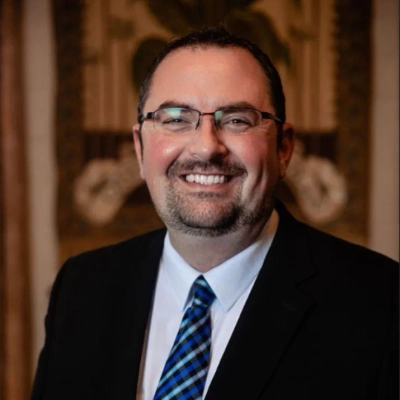16 Unexpected Skills That Became Crucial for Career Success
Today's professional world demands skills that many never anticipated needing, as revealed by industry experts who have identified 16 surprising competencies driving career advancement. These unexpected abilities range from writing and strategic networking to deep listening and customer empathy, each providing distinct competitive advantages in various fields. Mastering these overlooked skills creates opportunities that traditional qualifications alone cannot deliver, positioning professionals for success in increasingly complex work environments.
Writing Skills Open Professional Doors
Early in my career, I recognized that strong writing skills would be fundamental to my success when my father, an engineer, told me "if you can write a memo, you'll always have a job." While many of my colleagues focused primarily on technical abilities, I invested considerable time developing clear, persuasive communication through consistent practice and thoughtful organization of ideas. This focus on writing effectively has opened countless doors throughout my professional journey and remains one of the most valuable skills in my toolkit.
Strategic Networking Transforms Career Opportunities
Networking proved to be the unexpected skill that transformed my career trajectory when the arts industry came to a standstill during the pandemic. While completing my post-graduate degree in Career Development, I intentionally built professional relationships that ultimately created pathways into coaching that wouldn't have been accessible through traditional application processes alone. I recognized networking's importance early on when I noticed how many opportunities in the creative industries came through personal connections rather than job boards. This insight allowed me to strategically invest time in relationship-building while others were solely focused on enhancing technical qualifications.

Early Experimentation Reveals Authentic Career Path
The ability to embrace experimentation early in my career unexpectedly became one of my most valuable professional assets. By actively pursuing multiple ventures and roles, I discovered my authentic strengths and natural working rhythm before settling into a focused path. This approach helped me overcome the self-imposed pressure and fear of failure that often limits professional growth. Looking back, while many of my peers were rushing to specialize, this period of intentional exploration provided clarity about where I could truly make my greatest impact.

Human Copywriting Builds Trust Beyond Rankings
Copywriting turned out to be way more important than I initially thought — not just for marketing, but for shaping the way people understand and trust your brand. Early on, I noticed that pest control companies were losing people at the first sentence. Either they sounded too clinical or too gimmicky. I realized that if I could write like an actual human who knew bugs and understood what a stressed-out homeowner needed to hear, I'd be ahead of the pack.
Once I started writing that way — clearly, conversationally, and with empathy — traffic and conversions followed. It clicked for me that writing isn't just about ranking; it's about guiding people through a decision. And in a world where AI is churning out generic content fast, being able to communicate like a real person? That's a skill that stands out.
Meaningful Conversations Create Unexpected Professional Networks
Building the skill of meaningful conversation through interviewing people about their career paths turned out to be a game-changer for me. I took a cross-country RV trip and interviewed 300 people, simply wanting to learn from their stories, but this created an incredible network that's benefited me in surprising ways. One person I interviewed back in 2006 actually became an advisor to my company Featured nearly twenty years later, despite having no contact in between. What started as genuine curiosity about people's journeys became one of my most valuable professional assets long before "networking" became the buzzword it is today.
Effective Therapeutic Models Prevent Practitioner Burnout
The skill of developing efficient and effective therapeutic model that creates lasting results became unexpectedly became crucial when I realized traditional approaches often managed symptoms without addressing root causes. Over my 40+ years in practice, I recognized that true transformation requires not just insight but actual acceptance and integration of painful experiences, which led me to create Acceptance and Integration Training. I saw early on that professionals needed practical tools for rapid relief rather than just theoretical frameworks and empathy. This recognition guided me to develop training that transforms both client outcomes and the careers of therapists. Having a reliable approach to rapidly resolving pain that also addresses the healing of therapists is a gamechanger. It gives us a way to prevent burnout and set ourselves up for a long and satisfying career.

Precise Bookkeeping Builds Structural Business Success
The one unexpected skill I developed that became crucial for achieving my career ambitions wasn't a hands-on trade skill; it was hands-on, absolute bookkeeping discipline.
Most roofers see bookkeeping as abstract overhead—something to be done quickly at the end of the month. My ambition was always to run a scalable, multi-crew operation built on structural integrity. I realized early on that poor financial tracking was the largest, hidden structural leak in the entire construction industry.
I developed the skill of manually tracking every single dollar of hands-on material cost, labor hour, and waste with surgical precision. I would spend hours of my personal time tracking invoices and receipts, effectively auditing every single job myself.
I recognized its importance before others in my field because I saw that the difference between an honest, profitable job and a chaotic, low-margin job often came down to ten cents per square foot in unaccounted material waste or five minutes of unaccounted downtime. Without that hands-on financial precision, scaling the operation was just scaling the chaos.
This skill became crucial because it allowed me to bid jobs with structural accuracy, eliminate material leaks, and manage cash flow with absolute confidence. The ability to guarantee my numbers is what built the trust with banks and suppliers necessary for expansion. The best skill is one that is developed by a person who is committed to a simple, hands-on solution that makes financial integrity as critical as structural integrity.
Sensory Storytelling Elevates Brand Emotional Connection
Learning sensory storytelling became the defining skill that shaped our creative path. Early in my career, I focused heavily on design and branding, but I began experimenting with how sound, texture, and subtle movement influence perception. When we launched Equipoise, that awareness allowed us to craft experiences that felt immersive rather than transactional. Long before "multisensory branding" became a trend, I noticed that audiences connected more deeply when design triggered memory and emotion. What others saw as aesthetic detail, I viewed as emotional rhythm. Recognizing that connection between the senses and brand identity helped us stand apart in a crowded coffee market, where the story of how something feels often says more than how it tastes.

Data Organization Powers Strategic Business Decisions
A skill I never expected to rely on so heavily was data organization. I've always been a bit of a spreadsheet nerd, but in pest control, that's not something most people brag about. Early on, I started tracking everything—seasonal call patterns, customer retention rates, even which neighborhoods called back fastest after rain. What began as curiosity evolved into one of our most significant competitive advantages.
Before others caught on, I realized that those small data points could predict busy weeks, guide staffing, and even shape our marketing. It helped us grow strategically instead of reacting to chaos. In an industry where many still rely on gut instinct, learning to make decisions based on clean, organized data has quietly become one of the most valuable skills I've ever developed.

Timeboxing Protects Space for Meaningful Work
I never expected it, but getting really disciplined about timeboxing has been one of the most important things for my career.
At first, I thought blocking out time was just a personal productivity hack. I didn't see it as a key to doing better work. But as my career grew, I realized the hardest part wasn't the complexity of design; it was how my day kept getting chopped up. Meetings, notifications, and constant check-ins meant I rarely had the uninterrupted focus I needed for deeper design work or real strategy.
That's where timeboxing became my safety net. By actually blocking off time for the work that matters most, even if it's just a couple of hours for strategy, I can protect the creative space I need. If I only react to emails and urgent requests, the important stuff never gets done. I started to notice a pattern. The colleagues who made the biggest impact were often the ones who were deliberate about how they spent their time. They weren't just busy. They were focused. I saw some smart people struggling because their days were shaped by whatever came at them, not by what they wanted to accomplish.
One day it hit me. If I didn't put "deep work" on my calendar with the same importance as a big meeting, it would never happen. That was a game-changer for me. While learning new tools is important, I found that learning to protect my own time is what actually lets me do my best work in the first place.
It's not just about getting more done. It's about having the space to do the work that really matters. And to do it well.

Deep Listening Transforms Patient Care Outcomes
Listening became the skill that reshaped every part of the practice. Early in my career, medical training emphasized diagnostics and data, yet patient outcomes often hinged on unspoken details shared in conversation. I began treating each visit as a dialogue rather than an examination, focusing on tone, phrasing, and pauses as much as symptoms. That shift revealed patterns of stress, sleep deprivation, or nutritional gaps that lab results alone missed. Over time, listening evolved into a clinical tool that strengthened trust, improved adherence, and reduced unnecessary visits. While others doubled down on speed and efficiency, I recognized that genuine listening built continuity—the foundation of Direct Primary Care. In a healthcare model that values long-term wellness over volume, attentive communication became the most strategic skill for patient care and professional fulfillment.

Supply Chain Analytics Forecast Market Inefficiencies
The ability to interpret data from supply chain analytics became essential long before it was a common expectation in the medical supply sector. Early in our operations, we noticed subtle inconsistencies between projected and actual delivery times. Rather than attributing them to chance, we began tracking supplier metrics, transportation delays, and regional demand surges through a basic dashboard. Over time, that skill evolved into a data discipline that shaped how we forecast orders, manage inventory, and negotiate contracts. While many in the industry relied on instinct or vendor reports, our commitment to reading the data ourselves allowed us to spot inefficiencies weeks before they became visible in the market. That foresight has kept our shelves stocked during shortages and helped hospitals maintain continuity of care even under logistical strain.

Customer Empathy Differentiates Technical Service Businesses
One skill that has proven to be crucial in my journey as the CEO and founder of ALP Heating LTD. is the ability to empathize deeply with our customers. Initially, I thought that technical expertise and knowledge of HVAC systems would be the keys to success in this industry. While those are certainly important, it was my ability to connect with clients on a personal level that truly set my path forward.
In the early days of ALP Heating, I realized that customers often feel overwhelmed by the complexities of heating and cooling systems-especially when their comfort is at stake. I made it a priority to listen to their concerns and understand their unique situations. For example, during a particularly frigid winter in the Greater Toronto Area, I encountered a family stressed about their aging furnace. Instead of simply recommending a replacement, I took the time to discuss their budget, lifestyle, and long-term comfort needs. This approach not only alleviated their immediate worries but also fostered trust and loyalty, which are invaluable in our business.
Recognizing the importance of empathy allowed me to differentiate ALP Heating from others in the field. While many technicians can provide service, few take the time to truly understand the emotional impact that HVAC issues can have on a family. This skill has guided our customer-care philosophy, leading to our commitment to clear communication and minimal disruption during service visits.
Moreover, this empathetic approach has informed our preventive maintenance plans, like the ALPCare program. By engaging with customers about their experiences and the challenges posed by local climate conditions, we were able to develop services that not only address immediate needs but also enhance long-term system efficiency and reliability. In doing so, we empower our clients to make informed decisions about their HVAC systems, which ultimately leads to greater satisfaction and peace of mind.
In a competitive industry, I believe that the ability to genuinely connect with customers is a game-changer. It has shaped the culture at ALP Heating, instilling a sense of community and shared responsibility for our clients' comfort. As I often say, "It's not just about heating or cooling a space; it's about creating a home where people feel safe and comfortable." This perspective has been integral to my career and the success of ALP Heating as a family-owned, award-winning service provider.

Search Behavior Patterns Anticipate Algorithm Changes
Pattern recognition in search behavior became the turning point for my career. Early on, I started mapping how local queries shifted with seasonality, demographics, and even minor language changes. It went beyond keyword tracking—understanding why users searched the way they did revealed patterns that most marketers overlooked. Recognizing this helped me anticipate ranking shifts before algorithms caught up. For instance, noticing that "near me" searches were subtly giving way to intent-based phrasing like "best for families" allowed me to pivot content strategy months in advance. That foresight turned clients' local listings from static pages into living ecosystems that evolved with user behavior. What seemed like an obsession with data nuance became a strategic advantage that now defines how I build scalable, intent-driven local SEO systems.

Narrative Clarity Builds Trust in Construction
Storytelling became the skill that reshaped our entire approach to roofing and solar work. Early on, while most of the industry focused on technical specs and warranties, we realized that homeowners responded more to clarity and connection than construction jargon. Learning to frame every project as a story—about safety, sustainability, and design integrity—changed how we communicated our value. We began translating complex installation details into narratives people could visualize, helping them see how each decision shaped their home's future. Recognizing the power of storytelling before it became common in trades allowed us to build deeper trust and stronger brand loyalty. What began as a communication skill evolved into a strategy for leadership, marketing, and client experience, proving that even in construction, how you tell the story can be as impactful as how you build the roof.

Manual Inventory Verification Guarantees Customer Reliability
The skill I developed that unexpectedly became crucial wasn't leadership or finance. It was simple, tedious, Manual Inventory Verification. I spent hours physically checking the shelf, cross-referencing OEM Cummins parts against the manifest, even when the computer said the count was perfect.
I recognized its importance before others because in the heavy duty trucks trade, a digital error is a physical disaster. A $5,000 Turbocharger is worthless if the computer says it's on shelf X, but it's actually on shelf Y. That mistake costs a client days of downtime.
That skill of absolute, physical certainty is the foundation of our entire operation. It ensures that when a client calls for Same day pickup of a complex ISX or X15 part, we can guarantee it's here. I transferred this skill by making every manager physically verify the high-value stock every Monday.
The ultimate lesson is that technology is only a tool. True career success is built on the simple, often boring, physical discipline that others choose to delegate. That certainty is the most valuable product we sell.






